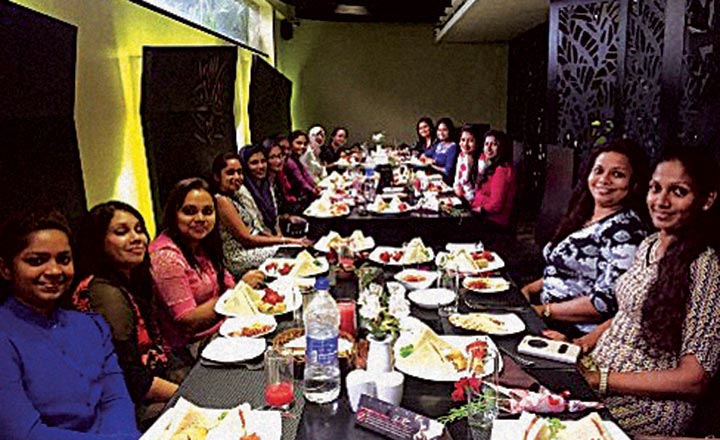Eligibility criteria: Women must form at least 10% of the workforce; minimum 70% of the women, and all employees must share a positive perception of the workplace; and the organisations must meet the minimum qualifying criteria on the assessment of their people practices, evaluated through a proprietary tool. To pick the Top 15, two-third weightage was given to the experience of women employees and one-third weightage to people practices specifically for women employees.
(Listed in alphabetical order)
Jones Lang LaSalle Property Consultants (India)
- Industry: Construction, infrastructure and real estate
- India HQ: Delhi
- Ramesh Nair: CEO and country head
- Tanvi Choksi: Director and head, HR
- Employee strength: 7,304
Ramesh Nair, CEO, JLL India, believes that a great workplace keeps its people at the centre of what it does. One of its employee-friendly policies is that of having Office Mavens, groups of senior women leaders across seven cities and select client sites. Women employees facing any issues or concerns in their day-to-day work can approach these Mavens, who will address the concern in the best possible manner. Further, JLL also organises monthly Women Breakfast Connect, wherein the employees can interact freely with the senior leadership. It is through these conversations that the company realised how awkward women feel when returning to a fulltime-job after a long break. To counter this, JLL organises a small welcome party for the woman employee where not just her colleagues, but also the senior leadership participates. The company also allows women employees to opt for a phased comeback into fulltime employment by gradually increasing the working hours. JLL India also promotes shared responsibilities — personally and professionally — between men and women. Precisely why the benefits of flexible work hours, work from home and family care leave is extended to male employees too. D&I (diversity and inclusion) is one of the main KRAs for any leader in their company and the approach is more top-down, to ensure timely implementation.

Kronos Inc
- Industry: Information technology
- India HQ: Noida
- James Thomas: Country manager
- Rajiv Burman: Senior director and head, HR, APAC
- Employee strength: 872
Promoting gender diversity and an employee-friendly environment has qualitative and quantitative benefits, as experienced by Kronos. The software and services company believes that happy employees drive greater productivity, and this in turn makes for delighted customers. The company has put in place an elaborate engagement programme called Women in Business (WIB). Led by a steering committee of high women-achievers, the programme’s agenda is to create a global culture and a gender-neutral environment. The WIB employs a ‘70-20-10’ approach to empower women staffers: 10% of events and training through select conferences and skill-building programmes, 20% of coaching established through mentor relationships through WIB Sand 70% of hands-on, targeted job activities to strengthen identified skills. Kronos also organises quarterly roundtables with senior executives, where participants are asked open-ended questions about taking more risks, and being confident and courageous. To ensure a smooth maternity transition, women are guided through the period before, during and after their maternity leave. A checklist provides guidelines on communication plans, work plans and logistics needed — for both the employee and the manager. It also makes it mandatory to provide a mentoring relationship to women returning from maternity, typically with another woman colleague who has recently made a similar transition.
Marriott Hotels India
- Industry: Hospitality
- India HQ: Mumbai
- Neeraj Govil: Area vice president, South Asia
- Gurmeet Singh: Senior area director, HR, South Asia
- Employee strength: 16,000
JW Marriott, founder of the eponymous hotel chain, had once famously said, “When we take care of our associates, they take care of our guests and the business will take care of itself.” These words continue to guide the company’s human resource policies. For example, there is the well-defined diversity and inclusion policy. As part of their Diverse Ownership initiative, it is the organisation’s goal to have 25% of the global hotels run by minorities and women. The programme, launched in 2005, has resulted in over 600 Marriott hotels being owned by both. Through the Diversity Dialogue Initiative, 95% of its employees across Asia (including India) have been familiarised with Marriott’s policies and practices on gender diversity. The hospitality major also runs the Women in Leadership Asia Pacific Ambassador Programme — launched in 2017 — where women leaders in different markets were made responsible for conducting activities related to women’s wellness, women empowerment and an evening of engagement.
This is Part 3 of a five-part series. Read Part 1 here and Part 2 here.









